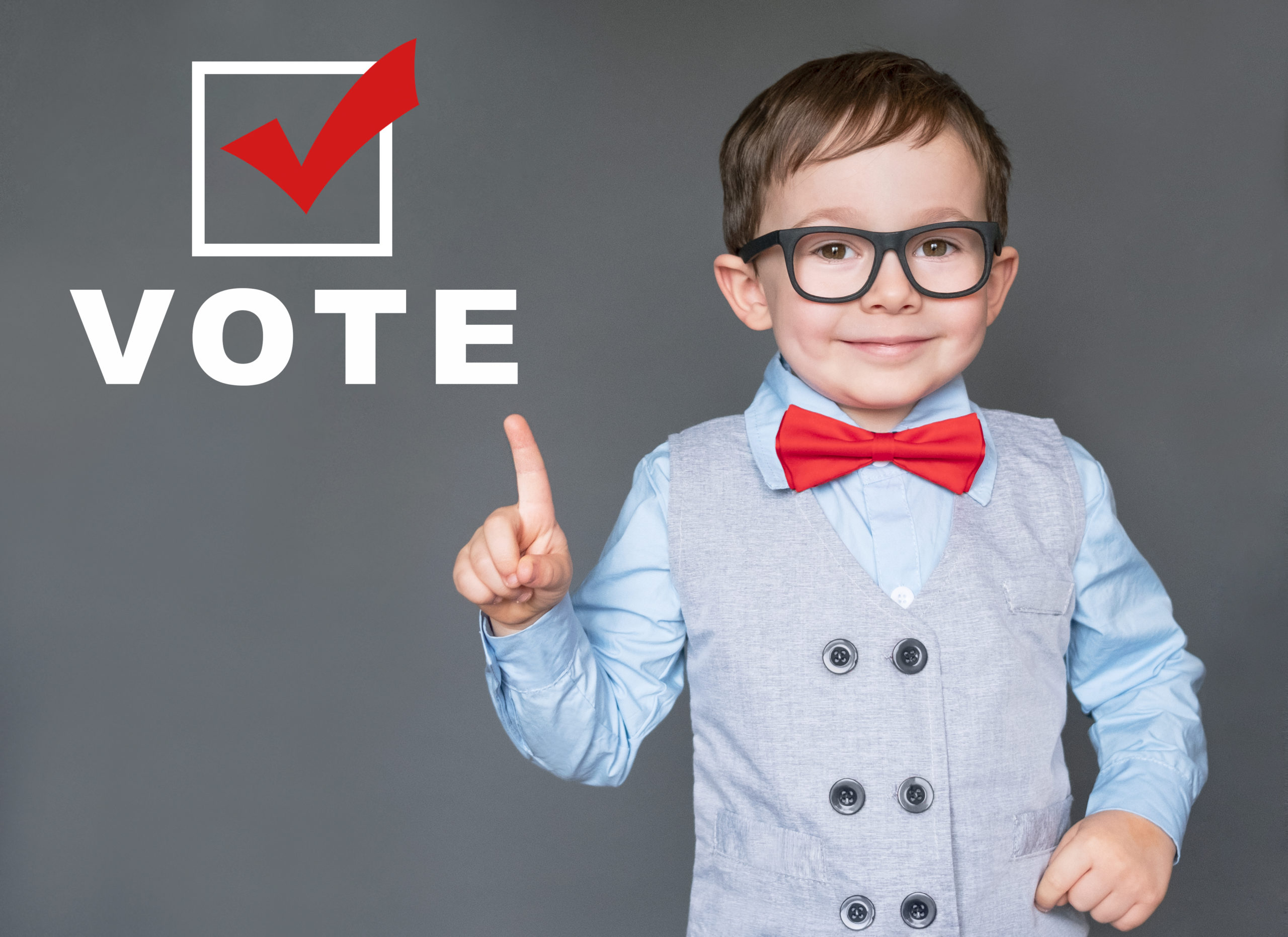
Homebound? Turn Your Kids into Smart Voters
Are you home with kids and running out of things to do? Here’s a challenge – turn your stay-at-home doldrums into an interactive civics lesson and lively debates that will inspire your children – and you – to become active, engaged citizens, and to create a “Magenta Nation”.
Why is this important? According to a just released study by the Knight Foundation, more than 100 million Americans did not vote in the 2016 election, representing 43% of the eligible voting-age population.
Those who are less inclined to vote include people of color, people who are poor, especially women, and – young people.
Why don’t they vote? Non-voters are more likely to lack faith in the election system and feel their vote doesn’t matter. They are less engaged with news and feel uninformed. They are busy, they may think voting is a hassle, and they have other priorities.
Those who are most likely to vote tend to be older, white and educated. Consequently, candidates that win are more likely to represent the interests of this voting contingent, at the expense of other segments of society.
As for young people, they tend to find politics boring and complicated. They are also likely to fall into the “underemployed” segment, as they are just starting their careers and working life; this group is also less likely to vote. Young people in the study:
- Consume significant media, but news is not a primary category in that consumption
- Are less likely to believe that democracy influences their lives or to be interested in shaping that democracy
- They are less likely to trust the validity of the election system or to believe it represents the will of the people
Tellingly, young voters are more likely to vote if their parents and family does so and discusses current affairs and issues at home.
So, where do you start? Here are some ideas.
- Start talking about issues that are important to them. Polls show that the causes they are most concerned about are gun control, the environment and race relations. Ask questions about these topics to find out their thoughts. Listen. Respond. Don’t argue. Yes, it’s challenging to get teens and young adults to talk at all sometimes. So be low key and interested but not opinionated.
- Find ways that you, as a household, can make a difference in these areas. The easiest way is probably around the environment – recycling, making do with what you have versus buying everything new, refurbishing, walking and riding bikes, growing some of your own food.
- Watch TV and movies that will spark conversations. For example, “The Hate You Give,” “Bombshell,” “Parasite,” “Gandhi,” “Schindler’s List,” “Hotel Rwanda,” “Saving Private Ryan,” “The Patriot,” “Hidden Figures,” “The Help,” “Dark Waters,” “Invictus,” “Lincoln,” “Twelve Years a Slave,” “Norma Rae,” “All the President’s Men,” “The Imitation Game,” and “The Big Short,” are a few examples of powerful films that will touch emotions and hearts and provide plenty of fodder for discussion.
- Watch and read the news yourself. Talk about it. Getting people to suddenly watch debates or read about politics is a reach. But introducing topics into conversation can spark an interest and get young people thinking.
- Instead of making conversations abstract, bring it down to the level of daily life. How would their prospects for college change if tuition was free? Have they thought about getting health care insurance once they are no longer your dependent? Do they know how much it costs? How much does it actually cost to support yourself today? How much are taxes, and what do they pay for?
- When elections come about, talk about the candidates and what they stand for. When it comes to “down ballot” candidates, this may be challenging – sometimes there isn’t much information available. It took me an hour to find information on candidates running for judicial appointments in the 2018 election. Discuss why these non-Presidential positions are important – what do judges do and how can they influence your life?
- And finally, when voting day comes, MAKE IT A BIG DEAL – it’s as important of a milestone as a First Communion, a Bar Mitzvah, getting a driver’s license, or an 18th birthday. Our son turned 18 days before a Presidential election, and I still feel the pride we all felt, walking down the block to our polling place where the three of us voted, him for the first time. We took a picture and it was featured prominently in our holiday letter than year. When our daughter voted for the first time, we repeated the ritual. When they were away at college, we sent them their mail-in ballots and information on local candidates that were on the ballot. Whatever they do in life, they started out with a strong understanding of how important it is to be a good citizen and to vote.
How do you encourage civic-mindedness in your family? How do you raise smart young voters? Share your ideas here. Thanks for reading.
Interested in healing America? Order "Magenta Nation" today and get started.
Think people can’t change their beliefs? Read “Love or Loyalty” to see the power of forgiveness in healing relationships and our nation.
Wondering about how families can heal, even after death? Read “Love Eternal... One More Time” to be amused and enlightened.